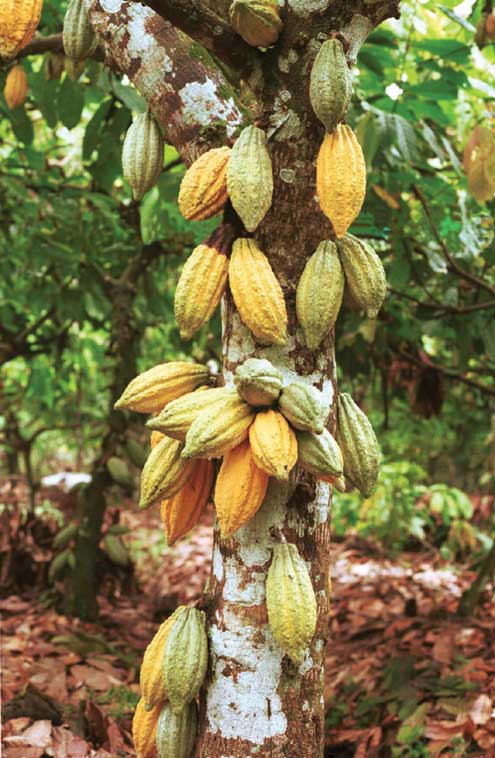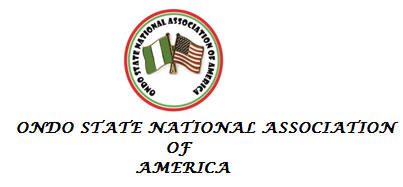


About Ondo State
Ondo State of Nigeria was one of the seven states created on 3rd February 1976 by the then Federal Military Government of Nigeria. It was carved out of the old Western State. The state covered the total area of the former Ondo Province, created in 1915 with Akure as the provincial headquarters. Ondo State took off formally on 1st April, 1976, consisting of the nine administrative divisions of the former Western State (Ministry of Information and Culture, 1979). These nine divisions then were Akoko, Akure, Ekiti Central, Ekiti North, Ekiti South, Ekiti West, Okitipupa, Ondo and Owo. Akure Township was retained as the state headquarters.
However, on 1st October 1996, Ekiti State comprising Ekiti Central, Ekiti North, Ekiti South and Ekiti West Divisions was carved out of Ondo State. Hence, the present Ondo State is made up of Akoko, Akure, Okitipupa, Ondo and Owo Divisions. Akure remains the State capital.
LocationThe state lies between latitudes 5o45' and 7o52'N and longitudes
4o20' and 6o5'E. Its land area is about 15,500 square kilometers. Edo and
Delta States bound Ondo State on the east, on the west by Ogun and Osun
States, on the north by Ekiti and Kogi States and to the south by the Bight
of Benin and the Atlantic Ocean.
ADMINISTRATIVE AREAS The apex of the administrative structure is the state
headquarters, Akure. Prior to the carving out of Ekiti State from Ondo State
there were twenty-six Local Government Areas (LGAs). Fourteen of these
remained in Ondo State, and from these, additional four LGAs were created.
As at now, there are eighteen LGAs in Ondo State.
Ethnic Composition, Languages, Culture and the ArtsThe people of the state
are Yoruba (except for the Ijaw or Ijo settlement in the littoral part of
the state), although other Nigerians and foreign nationals co-exist
peacefully in the state. The most known ethnic sub-groups are the Akure, the
Akoko, the Ondo, the Ijo (made up of a part of Apoi [note that some Apoi
claim Yoruba ancestry] and Arogbo), the Ikale, the Ilaje and the Owo.
Generally, the people have similar customs, traditions and language although
there are some variations, most observable with the Ijo. In the field of
arts and culture, Ondo State is among the richest in the federation in the
variety and quality of its traditional sculpture. The people are lovers of
arts, music (e.g. Obitun dancers), with sayings and poetry. The ivory
carvings, bronze works and wood carvings from Owo are basically Yoruba
sculptures; excavated at Egberen Street in the town in 1971, they showed the
naturalist out of the classical Ife (Ministry of Information & Culture,
1976).
Population Structure and DistributionAlthough the detailed analyses of the
1991 census are yet to be done, information already provided indicates that
Ondo State has a total of 2,255,728 persons made up of 1,134,703 males and
1,121,025 females. Curent projection however put the people at way over 3
million. The structure and distribution of population in Ondo State have
been affected by high incidence of migration of Ondo people to other parts
of the country. Ondo indigenes are found in various services and especially
in education and civil service. Some are traders in many large cities of the
federation, while in recent times, many industrialists have established
plants in cities in Ondo State and other parts of the country. It is also
pertinent to observe that Ondo State harbours many migrant farmers from all
the southwestern states and from Kwara, Kogi and Benue states (the agatu,
labourers from the north, phenomenon is quite popular in the state). Most of
these migrant farmers cultivate cocoa, while some serve as farm labourers.
Urban DevelopmentLike in the other Yoruba areas, the people of Ondo state
live mainly in urban centres. Most of these urban centres are compact
settlements each with a population of over 30,000 inhabitants. During the
years of military administration, there were consistent effort to encourage
urbanization through the creation of more states and local government areas.
Other factors aiding urban development are the establishment of tertiary
institutions such as Colleges of Education, Technical Colleges, Polytechnics
and Universities, industrial plants such as glass factory and services
whether financial or commercial. Some of the notable settlements are Akure,
Ondo, Owo, Ikare, Okitipupa, Idanre, Ile-Oluji and Ore.
Rural DevelopmentOndo State is primarily an agricultural state and therefore
has many rural centres. Prior to 1985, there had been a conspicuous neglect
of the rural areas of the state. However, since 1985, Ondo State has been a
beneficiary of concerted programmes to revitalize, develop and transform
rural areas. The most important programmes in this regard were those
implemented by DFRRI, NDE, as well as the recently inaugurated Accelerated
Poverty Alleviation Programme under the Accelerated Poverty Alleviation
Agency APAA including the latter's Self-Help Programme. The role of third
party rural development including the UNDP etc between 1994 and 1999 must
also be noted.
Not only did DFRRI open up many rural areas in the State by constructing
feeder roads (more than 1,230km in length) (Ministry of Information &
Culture, 1992), it contributed immensely to the overall development and
well-being of rural dwellers by sinking deep wells and bore-holes in many
villages and suburban areas. In addition, DFRRI assisted communities in the
electrification of their areas. In terms of economic development, DFRRI
encouraged the rural dwellers to establish their own banks through the
setting up Community Banks. Some of the banks are still found in many LGAs
with many of the rural dwellers as shareholders.
The Youths in Agricultural programme of the present government is focusing
on rural youth & women participation. Women are actively involve in
processing local food and fibre items such as cassava (gari), maize, rice
and sisal-hemp for better prices. The The programme has helped in making
available on-the-job training to young school leavers (both secondary and
tertiary) in modern farming, traders and industry. The programme has also
helped to open up the rural areas in all parts of the state.
It is noteworthy to observe that the present civilian administration in the
State has rural development and rural integration as a major focus of its
policies and has therefore created an agency to address poverty.
Copyright © 2015 - Designed and Powered by Ondo State National Association of America